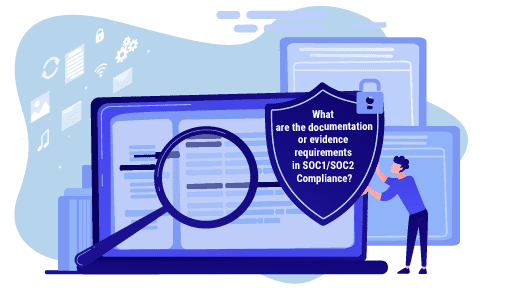Table of Contents
When it comes to U.S. immigration, the term “Extraordinary Ability” carries a weight of its own. It’s a category reserved for individuals who have achieved remarkable success and recognition in their respective fields. Whether you’re an outstanding scientist, an acclaimed artist or an accomplished athlete, demonstrating extraordinary ability is your ticket to an EB-1A (Employment-Based First Preference) visa, which can lead to a green card in the United States. However, to embark on this journey, you must be prepared to provide compelling documentation and evidence to support your claim.
The “Extraordinary Ability” category in U.S. immigration law is not just a label; it represents a path to the United States that is reserved for individuals who have achieved truly exceptional success and recognition in their fields. This category, which falls under the EB-1A (Employment-Based First Preference) visa, is a prestigious avenue for foreign nationals who have reached the pinnacle of their careers. It’s not limited to any specific domain; rather, it recognizes excellence across a wide range of disciplines, including the sciences, arts, sports, business and more.
One of the defining features of the EB-1A category is the rigorous standard of evidence that applicants must meet. To be considered for this visa, you must provide compelling documentation that demonstrates your extraordinary ability. This evidence typically includes a combination of awards, publications, media recognition and letters of recommendation from experts in your field. These documents collectively paint a picture of your outstanding achievements and impact on your industry or profession.
For scientists and researchers, this might mean presenting groundbreaking research findings, patents or influential publications. Acclaimed artists can showcase their works exhibited in prestigious galleries or museums, along with critical acclaim. Accomplished athletes must provide evidence of their exceptional athletic achievements and international recognition. Entrepreneurs and business leaders can highlight their contributions to industry advancements, job creation and economic growth.
Obtaining an EB-1A visa is a significant accomplishment, as it not only grants you permission to work in the United States but also puts you on the path to obtaining a green card. This means that you can live and work in the United States indefinitely and if you choose, you can pursue U.S. citizenship in the future.
However, it’s important to note that the EB-1A category is highly competitive and the application process can be intricate. It requires meticulous preparation, attention to detail and the ability to present a compelling case that clearly establishes your extraordinary ability. Moreover, working with immigration professionals who specialize in this area can be invaluable in navigating the complex requirements and ensuring a strong application.
In conclusion, the “Extraordinary Ability” category in U.S. immigration law is a pathway reserved for individuals who have truly excelled in their fields. While the standards are high and the process demanding, the rewards, including the possibility of obtaining a green card and eventually U.S. citizenship, make it an attractive option for those who have achieved remarkable success and recognition in their respective professions.
For additional details, consider exploring the related content available here Request for Evidence Template
Understanding the EB-1A Category
The EB-1A visa category is designed for individuals who can prove their extraordinary ability in their field. This category doesn’t require a specific job offer or labor certification, making it an appealing choice for many aspiring immigrants. To qualify for an EB-1A visa, you must meet certain criteria and provide evidence that demonstrates your exceptional talents and contributions.
The EB-1A visa category stands as a beacon of opportunity for individuals of exceptional ability who aspire to make the United States their new home. Let’s delve deeper into the intricacies of this coveted immigration pathway, unveiling why it holds such allure and how you can chart your course toward it:
Extraordinary Ability Defined: The heart of the EB-1A visa is the notion of extraordinary ability. To qualify, you must showcase that you possess an exceptional level of expertise, skill or talent in your field. This isn’t a mere recognition of competence; it’s a celebration of your outstanding contributions.
No Specific Job Offer Required: Unlike many other visa categories, the EB-1A doesn’t necessitate a specific job offer from a U.S. employer. This liberates you from the constraints of a predefined employment arrangement, granting you the flexibility to pursue your professional passions and objectives independently.
Labor Certification Waiver: The burden of labor certification, a time-consuming and intricate process, is lifted with the EB-1A. This means you can circumvent the arduous journey of securing labor market approval, expediting your path to U.S. immigration.
Evidence of Exceptional Abilities: Central to your EB-1A petition is the presentation of compelling evidence that substantiates your extraordinary abilities. This might encompass accolades, awards, peer recognition, publications, significant contributions to your field and any other pertinent achievements that underscore your distinction.
Cross-Disciplinary Appeal: The EB-1A visa isn’t confined to specific fields or industries. Its inclusivity spans across a diverse array of professions, from the sciences and arts to business, athletics and beyond. This breadth widens the gateway for individuals from various backgrounds.
National Impact: While the EB-1A doesn’t require direct ties to national interest, your exceptional abilities and contributions inherently align with the United States’ pursuit of excellence and innovation. Your work becomes a testament to the nation’s commitment to fostering talent and progress.
Fast-Track to Permanent Residency: The EB-1A visa isn’t just a temporary sojourn; it’s a portal to permanent residency in the United States. Once granted, you have a direct pathway to securing a green card and, eventually, U.S. citizenship.
Freedom to Shape Your Career: With the EB-1A, you have the autonomy to shape your professional journey in the United States. Whether you wish to continue groundbreaking research, pioneer entrepreneurial ventures or contribute to the cultural fabric, this visa provides the latitude to follow your aspirations.
In conclusion, the EB-1A visa category epitomizes the American dream of welcoming exceptional talents and fostering innovation. It beckons those with extraordinary abilities to embark on a journey that not only rewards their past achievements but also opens doors to limitless possibilities in the United States. Your exceptional talents are the compass; the EB-1A is the bridge to an enriching future in the land of opportunity.
Additionally, you can find further information on this topic by visiting this page: Employment-Based Immigration: First Preference EB-1 | USCIS
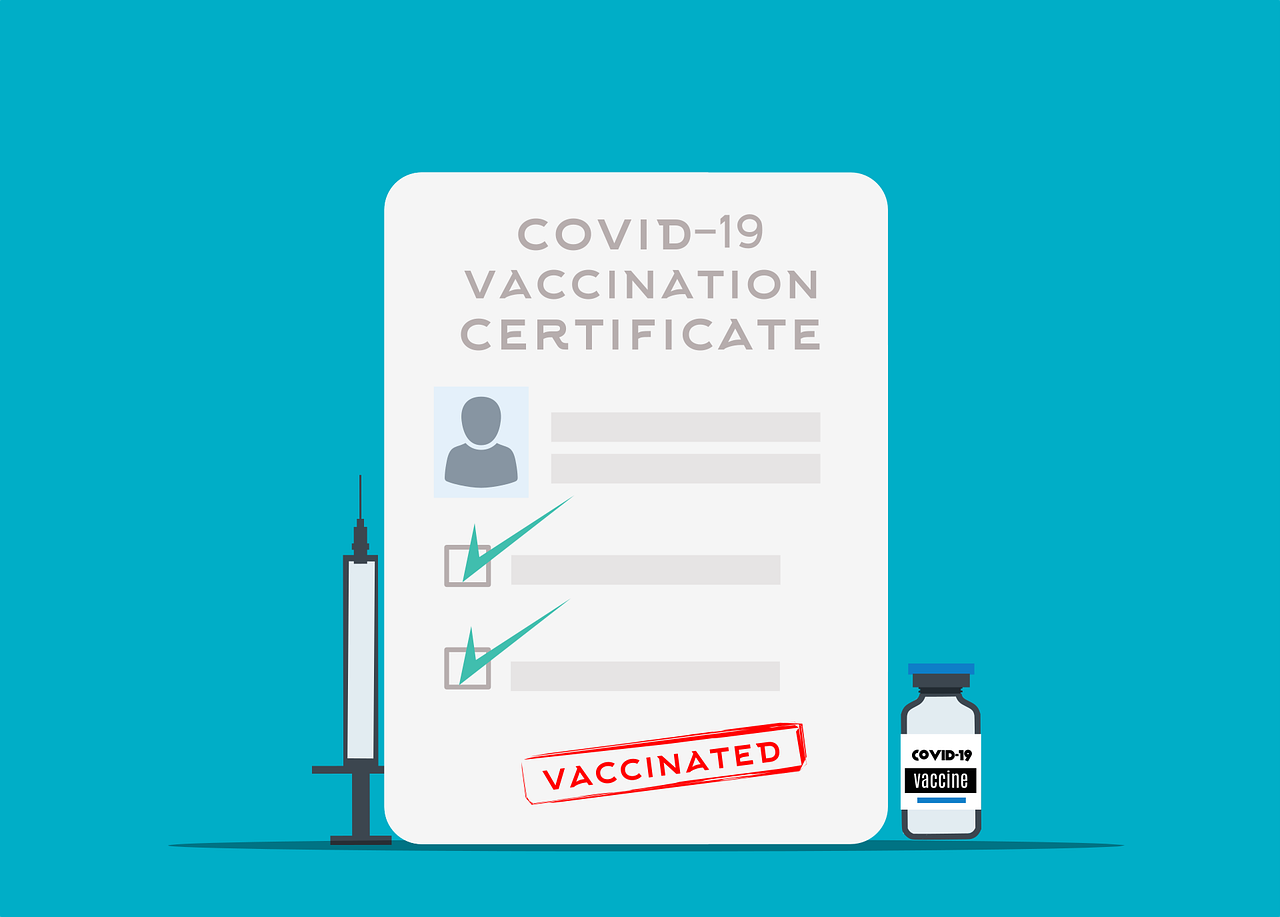
Building Your Case
Building a strong EB-1A case begins with meticulous documentation and thorough evidence gathering. Here are some key elements to consider:
“Building a robust EB-1A case is a meticulous process that demands careful planning, comprehensive documentation and persuasive evidence. For individuals aspiring to secure a green card under this category, here are some essential elements and strategies to consider:
1. Exceptional Achievements: The foundation of an EB-1A case lies in your exceptional achievements and recognition in your field. Highlight your accomplishments, such as awards, honors, publications, patents or any other form of recognition that sets you apart as a leader or influencer in your domain.
2. Expert Recommendation Letters: Expert recommendation letters play a crucial role in substantiating your extraordinary abilities. Seek letters from respected professionals in your field who can attest to your significance and impact. These letters should provide detailed and persuasive endorsements of your accomplishments.
3. Impact and Influence: Emphasize the impact and influence of your work on your field, industry or discipline. Explain how your contributions have advanced knowledge, improved practices or had a meaningful effect on society. Be sure to provide specific examples and quantifiable data whenever possible.
4. Publications and Research: If you are a researcher or scholar, the quantity and quality of your publications are critical. Highlight the significance of your research, the journals in which you’ve been published and any citations your work has received. Showcase the innovative aspects of your research that have contributed to your field.
5. Artistic and Creative Endeavors: For artists, performers or creatives, showcase your body of work and the impact it has had on your artistic discipline or the broader cultural landscape. Highlight exhibitions, performances, awards or critical acclaim as evidence of your exceptional ability.
6. National and International Recognition: Provide evidence of recognition on both a national and international scale. This may include awards, invitations to speak or perform at prestigious events or participation in international collaborations.
7. Contributions to the U.S.: Emphasize how your work benefits the United States and is in the national interest. Illustrate how your achievements contribute to the country’s economic, scientific, cultural or artistic development.
8. Clear and Persuasive Writing: Craft a compelling written petition that clearly presents your case. Use persuasive language to connect the dots between your accomplishments and your impact. A well-structured and coherent petition can significantly enhance your chances of success.
9. Legal Guidance: Seek the assistance of experienced immigration attorneys who specialize in EB-1A cases. They can provide valuable insights into the specific requirements and strategies for your unique situation. Legal experts can help you navigate potential challenges and strengthen your case.
10. Comprehensive Documentation: Compile a comprehensive package of evidence that leaves no doubt about your eligibility. This includes organizing your achievements, awards, publications and other supporting materials in an easily accessible format.
Building a compelling EB-1A case requires time, effort and attention to detail. However, the potential benefits, including expedited green card processing and the opportunity to continue making significant contributions to your field in the United States, make it a worthwhile endeavor. By meticulously documenting your extraordinary abilities and impact, you can increase your chances of success and move closer to achieving your immigration goals.”
Additionally, you can find further information on this topic by visiting this page: Chapter 2 – Extraordinary Ability | USCIS

Quantifiable Achievements
One of the fundamental aspects of proving extraordinary ability is showcasing your quantifiable achievements. This could include awards, prizes or recognition you’ve received for your work. Be prepared to submit copies of certificates, medals or letters of recognition.
Certainly, let’s delve deeper into the importance of quantifiable achievements when demonstrating extraordinary ability for an EB-1A visa application:
Quantifiable Achievements: The Heart of Your EB-1A Application
In the world of immigration, the EB-1A visa is often perceived as one of the most challenging categories to qualify for and rightfully so. To secure this visa, you must convincingly establish your extraordinary ability in your field, leaving no room for doubt in the eyes of immigration officials. One of the most potent weapons in your arsenal to achieve this is showcasing quantifiable achievements.
1. Awards and Prizes: Shining Stars on Your Resume
Awards and prizes are like shining stars on your resume. They serve as tangible proof of your excellence and recognition by peers, experts or organizations in your industry. These accolades can range from prestigious international honors to local recognitions that highlight your contributions and standing. When including them in your EB-1A application, be sure to provide not only the name of the award but also its significance and the competition or criteria you had to meet to win it. It’s about demonstrating that your achievements are truly exceptional and not just commonplace acknowledgments.
2. Letters of Recognition: Voices of Authority
Letters of recognition hold immense weight in the EB-1A application process. They are essentially voices of authority testifying to your extraordinary ability. These letters should come from experts, peers or individuals with significant influence in your field. Their content should go beyond mere compliments; they should provide specific examples of how your work has influenced or contributed to your field, making it evident why you stand out. Highlighting these letters and the credentials of those who wrote them can make a substantial difference in your case.
3. Certificates and Medals: Physical Testaments to Your Excellence
Certificates, medals and physical tokens of recognition are solid proof of your achievements. They are tangible evidence that can be presented during the adjudication of your application. Whether it’s a certificate for a groundbreaking research project or a medal for exceptional artistic contributions, these items visually represent your accomplishments. Ensure that you include high-quality copies of these documents, along with translations if they are in a language other than English.
4. Quantifiable Impact: Beyond the Trophies
While awards, prizes and recognition are essential, don’t forget to emphasize the quantifiable impact of your work. How has your research, art or expertise contributed to advancements in your field? Have you led projects that resulted in substantial improvements or innovations? Providing concrete data and metrics that demonstrate the real-world influence of your contributions can further solidify your claim of extraordinary ability.
In conclusion, quantifiable achievements serve as the backbone of your EB-1A application. They provide the objective, verifiable evidence needed to convince immigration authorities that you are indeed an exceptional talent in your field. Therefore, when preparing your application, meticulously gather and present your awards, prizes, recognition and any physical proof of your achievements, all while ensuring you convey the profound impact your work has had on your industry or field.
Additionally, you can find further information on this topic by visiting this page: Chapter 4 – O-1 Beneficiaries | USCIS
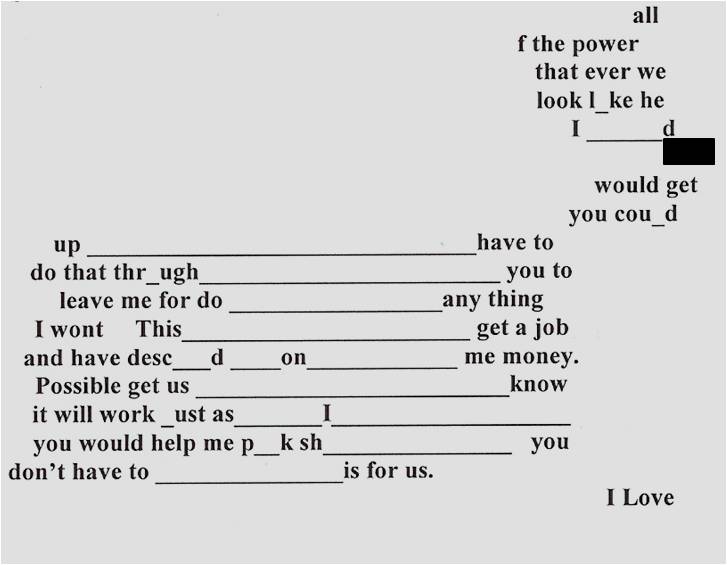
Publications and Contributions
If you’re a researcher, scientist or academic, a substantial record of publications in reputable journals or presentations at major conferences can significantly bolster your case. Provide copies of your published articles, conference programs and any evidence of the impact your work has had on your field.
For researchers, scientists and academics seeking to strengthen their case for immigration or visa categories like the EB-2 NIW (National Interest Waiver) or EB-1A (Extraordinary Ability), the significance of a robust record of publications and academic contributions cannot be overstated. Here’s a more detailed exploration of how this evidence can bolster your case:
1. Demonstrating Expertise: A substantial record of publications in reputable journals or presentations at major conferences serves as a compelling testament to your expertise and knowledge in your field. It showcases your dedication to advancing your area of study and positions you as a thought leader within your academic or scientific community.
2. Peer Recognition: Publications in respected journals often undergo rigorous peer review, indicating that your work has been assessed and recognized by experts in your field. This peer recognition adds credibility to your achievements and demonstrates that your contributions are esteemed within the academic and scientific community.
3. Measurable Impact: Beyond the mere quantity of publications, it’s essential to provide evidence of the impact your work has had. This impact could be measured in terms of citations, awards, grants received or the practical applications of your research. Highlighting the tangible outcomes and influence of your work underscores its significance.
4. Global Reach: If your publications have garnered attention on an international scale or have been cited by researchers from various countries, this further demonstrates the global relevance and impact of your contributions. It emphasizes that your work transcends geographical boundaries.
5. Conference Presentations: Presenting your research at major conferences not only indicates that your work is relevant but also that you are actively engaged in disseminating knowledge and collaborating with peers. Include documentation of your conference participation, such as presentation materials, programs or invitations.
6. Evidence of Collaboration: Collaboration with other experts in your field, both within and outside your institution or country, can also strengthen your case. Letters of recommendation from collaborators can emphasize the significance of your work and your contributions to collaborative research endeavors.
7. Continued Learning: Demonstrating a commitment to ongoing learning and professional development is valuable. Highlight any additional coursework, certifications or training that further enhances your expertise and contributes to the academic or scientific community.
In conclusion, a substantial record of publications and academic contributions not only showcases your expertise but also provides tangible evidence of your impact within your field. When compiling your immigration or visa application, it’s crucial to present this evidence thoughtfully, emphasizing both the quality and significance of your work. By doing so, you increase your chances of success in immigration processes that recognize and value academic and scientific excellence.
You can also read more about this here: Frequently Asked Questions for EB2 NIW (National Interest Waiver)

Testimonials and Letters of Recommendation
Supporting letters from experts in your field are a critical component of your EB-1A application. These letters should highlight your contributions, impact and why you are considered extraordinary. Choose individuals who can provide detailed insights into your work and its significance.
Supporting letters from experts in your field play a pivotal role in the EB-1A application process, serving as a powerful endorsement of your extraordinary abilities and contributions. These letters are more than just formalities; they are compelling testimonials that substantiate your claims and strengthen your case. Let’s delve deeper into the significance of these letters and the considerations for choosing the right individuals to write them.
1. Expert Validation: The letters from experts serve as independent validation of your achievements and abilities. They provide an objective perspective on your work, confirming that you have made significant contributions and have achieved a level of recognition that sets you apart in your field.
2. In-Depth Insights: It’s essential to choose individuals who can provide detailed insights into your work. These experts should be intimately familiar with your contributions and their impact. They can delve into the nuances of your research, projects or initiatives, highlighting the innovative aspects and their broader significance.
3. Credibility: The credibility of the individuals writing the letters is crucial. Select experts who are respected and recognized in your field. Their stature and reputation enhance the credibility of their endorsements. Peer recognition carries significant weight in the evaluation process.
4. Clarity and Specificity: Effective letters go beyond generic praise. They should provide specific examples of your accomplishments, emphasizing their relevance and impact. Specificity lends authenticity to the letters and makes your case more compelling.
5. Comparative Analysis: In some cases, experts may compare your work to that of others in your field. This comparative analysis can highlight the uniqueness and exceptional nature of your contributions. It demonstrates that your work stands out even among your peers.
6. Global Perspective: If your work has international relevance, consider including experts from both the United States and abroad. Their perspectives can underscore the global significance of your contributions and your potential to benefit not only the United States but also the world.
7. Diversity of Expertise: Depending on the nature of your work, you may seek letters from experts with diverse expertise. For instance, if your contributions span multiple disciplines, consider including experts from each relevant field. This showcases the multidimensional impact of your work.
8. Strong Articulation: The ability of the experts to articulate their views effectively is crucial. Well-written letters that convey a clear understanding of your work and its importance are more likely to leave a lasting impression on adjudicators.
9. Personal Connection: It can be advantageous if you have a personal or professional connection with the experts writing the letters. They may be more inclined to provide enthusiastic and detailed endorsements if they know you well and have witnessed your contributions firsthand.
10. Balance and Diversity: Strive for a balance of perspectives in the letters. While it’s essential to have experts who can speak to your technical prowess, also consider individuals who can address your broader impact, leadership and influence within your field.
In conclusion, the letters of support from experts are a critical component of the EB-1A application. They provide a well-rounded and compelling narrative of your extraordinary abilities and contributions. Carefully selecting individuals with the right expertise, credibility and clarity can significantly enhance the strength of your application, increasing the likelihood of a successful outcome and securing your path to the United States.
Additionally, you can find further information on this topic by visiting this page: How to Improve the Impact of Reference Letters Establishing …

Media Coverage
Any media coverage that highlights your achievements can serve as strong evidence. This includes articles, interviews or features in newspapers, magazines or on television.
Media coverage can be a powerful tool when seeking to showcase your achievements, expertise and contributions in various fields. Here’s an extended perspective on how media coverage can serve as strong evidence in different contexts:
Credibility and Validation: When your work, accomplishments or expertise are featured in reputable media outlets, it adds a layer of credibility and validation to your claims. It demonstrates that your achievements have been recognized and acknowledged by independent sources. This can be particularly important when seeking immigration benefits or when applying for grants, scholarships or research funding.
Wide Reach and Influence: Media coverage has the potential to reach a broad and diverse audience. Whether it’s through print, online articles, television or radio, media outlets have the capacity to disseminate your achievements to a vast number of people. This exposure can help you reach new audiences, expand your network and increase the impact of your work or message.
Documentation of Milestones: Media coverage serves as a historical record of your milestones and accomplishments. It provides a tangible record that can be referenced in the future, whether you’re applying for awards, promotions or opportunities that require a track record of success. Over time, this documentation can help you build a strong professional narrative.
Expertise and Thought Leadership: Being featured in media outlets can establish you as an expert or thought leader in your field. It allows you to share insights, knowledge and perspectives with a wider audience, positioning you as a go-to source for information and commentary. This can open doors to speaking engagements, consulting opportunities and collaborations.
Positive Public Perception: Positive media coverage can enhance your public image and reputation. It can create a favorable perception of your character, values and contributions. This can be valuable not only for personal and professional growth but also for organizations and causes you may be associated with.
International Recognition: In today’s interconnected world, media coverage can transcend geographical boundaries. Being featured in international media outlets can help you gain recognition and credibility on a global scale. This can be particularly advantageous if you have aspirations for international collaboration, research or business ventures.
Advocacy and Awareness: Media coverage can be a powerful tool for advocating on behalf of important causes or issues. It can raise awareness, generate public interest and mobilize support for initiatives that matter to you. Whether it’s a charitable cause, a research project or a social issue, media can amplify your message and impact.
To leverage media coverage effectively, it’s important to actively engage with journalists, share your story and expertise and proactively seek opportunities for coverage. Maintaining a strong online presence, including a professional website and social media profiles, can also enhance your visibility and make it easier for journalists to find and contact you. Ultimately, media coverage not only serves as evidence of your achievements but also as a dynamic tool for advancing your personal and professional goals.
To delve further into this matter, we encourage you to check out the additional resources provided here: Extraordinary Ability Green Card

Membership in Professional Organizations
Belonging to prestigious professional organizations or associations relevant to your field can also demonstrate your exceptional ability. Include membership certificates or letters confirming your active involvement.
Active membership in prestigious professional organizations or associations is a compelling testament to your exceptional ability and commitment to your field. Beyond mere inclusion on your resume, these affiliations can significantly bolster your credibility and showcase your dedication. Here’s a deeper exploration of the value they bring:
1. Networking Opportunities: Belonging to esteemed professional organizations provides you with a platform to network with peers, experts and influencers in your industry. Engaging in conversations, attending conferences and participating in discussions can foster valuable connections that can enhance your knowledge and career prospects.
2. Continuous Learning: Many professional organizations offer access to resources, publications and educational events that keep you updated on the latest trends, research and advancements in your field. Demonstrating your active engagement with these resources underscores your commitment to staying at the forefront of your industry.
3. Recognition and Awards: Some professional organizations bestow awards and honors to members who have made significant contributions to their field. Receiving such recognition can serve as compelling evidence of your exceptional ability and the esteem in which your peers hold you.
4. Collaboration and Leadership: Active participation in professional organizations often involves taking on leadership roles, such as serving on committees or boards. Demonstrating your ability to lead and collaborate with others underscores your standing as a respected professional in your field.
5. Peer Validation: Membership in reputable organizations carries a degree of peer validation. It signifies that your peers acknowledge your expertise and value your contributions to the field. This external validation can be particularly persuasive when seeking employment or immigration benefits.
6. Commitment to Professional Ethics: Many professional organizations have codes of ethics and conduct that members must adhere to. By being a member in good standing, you affirm your commitment to upholding these ethical standards, which can enhance your professional reputation.
7. Tangible Evidence: When including your professional memberships in an immigration or employment application, be sure to provide tangible evidence of your active involvement. This might include membership certificates, letters of recommendation from fellow members or leaders or documentation of your contributions to the organization.
In sum, belonging to prestigious professional organizations is more than a line on your resume; it’s a reflection of your dedication, expertise and commitment to excellence in your field. These affiliations provide a dynamic platform for growth, networking and recognition that can bolster your career, whether you’re seeking new opportunities, applying for immigration benefits or simply striving for professional excellence.
To delve further into this matter, we encourage you to check out the additional resources provided here: EB-1A Extraordinary Criteria: What is a membership in associations …

Original Contributions
Highlight any patents, inventions or groundbreaking contributions that set you apart from your peers. Documentation of the uniqueness and impact of your work is crucial.
Highlighting patents, inventions or groundbreaking contributions is not only about showcasing your accomplishments but also about illustrating your distinctiveness and the far-reaching impact of your work. It’s a critical step in presenting yourself as an exceptional talent in your field.
When documenting patents, emphasize not just the number but also the significance of these intellectual property assets. Provide details about the innovative nature of your patents, how they have solved real-world problems and any recognition or commercial success they may have garnered. Demonstrating that your inventions have practical applications or have influenced industry standards can be particularly persuasive.
In addition to patents, consider the broader scope of your contributions. Have you developed novel technologies or methodologies? Have you published research that has reshaped your field? Have your inventions or ideas been adopted by other researchers or industries? Highlight these accomplishments, as they can further establish your exceptional ability and influence within your domain.
Discussing the impact of your work is essential. Consider quantitative metrics such as the number of citations your research has received or the commercial success of your inventions. Qualitative indicators, such as awards, honors or recognition from peers, can also underscore the significance of your contributions.
Furthermore, it’s crucial to connect your work to real-world applications and societal benefits. How has your research or innovation positively affected people’s lives, industries or communities? Articulate these connections to demonstrate that your work transcends academic or professional boundaries and has a broader, meaningful impact.
Moreover, consider the narrative aspect of your documentation. Tell a compelling story about your journey as an innovator or researcher. Highlight challenges you’ve overcome, collaborations you’ve forged and the trajectory of your career. This narrative can provide context and depth to your achievements, making them more relatable and memorable.
Lastly, ensure that your documentation is clear, organized and well-presented. Adjudicators should be able to easily grasp the significance of your contributions and their uniqueness. Visual aids, such as charts, diagrams or images related to your inventions or research, can enhance the presentation of your work.
In summary, documenting patents, inventions or groundbreaking contributions is not merely a checklist of achievements but a narrative that showcases your exceptional talent. By emphasizing uniqueness, impact and the practical applications of your work, you can effectively set yourself apart from your peers and make a compelling case for your extraordinary ability in your field.
To expand your knowledge on this subject, make sure to read on at this location: Chapter 4 – O-1 Beneficiaries | USCIS
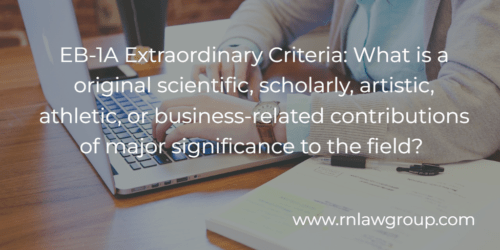
Impact on the Field
Demonstrate how your work has made a significant impact on your field, whether through innovations, advancements or influential publications. Include citations, references and any data that supports your influence.
Demonstrating the impact of your work on your field is a pivotal aspect of presenting a compelling case, particularly when applying for immigration benefits like the EB-1 or EB-2 National Interest Waiver (NIW) visas. To effectively showcase your contributions and influence, consider the following strategies:
Highlight Innovations and Advancements: Provide a clear and detailed account of the innovations and advancements that have resulted from your work. Explain how your contributions have pushed the boundaries of knowledge, technology or practice within your field. Use concrete examples, case studies or project outcomes to illustrate the practical implications of your work.
Influential Publications and Citations: If your work has been published in reputable journals or has garnered significant citations, emphasize these achievements. Mention the titles of your publications, the journals in which they were published and the number of times they have been cited. High citation counts can be a strong indicator of the impact and recognition of your work.
Collaborations and Partnerships: Describe any collaborations or partnerships you have engaged in that have resulted in noteworthy outcomes. Highlight how these collaborations have contributed to the advancement of knowledge, technology or solutions within your field. Providing specific examples of successful collaborations can strengthen your case.
Data and Quantifiable Results: Whenever possible, use data and quantifiable results to support your claims of impact. This could include metrics such as increased efficiency, cost savings, improved outcomes or enhanced performance. Data-driven evidence can provide a compelling narrative of your influence.
References and Endorsements: If respected experts or peers in your field have endorsed your work or provided references attesting to your contributions, include these in your documentation. Letters of recommendation from reputable individuals can carry significant weight in demonstrating your influence.
Real-World Applications: Explain how your work has been applied in real-world scenarios or has led to practical solutions. Demonstrating the tangible benefits that have arisen from your research, inventions or initiatives can underscore your impact on your field.
Recognition and Awards: If you have received awards, honors or recognition for your contributions, be sure to mention these achievements. Awards from reputable institutions or organizations serve as external validation of your influence.
Peer Review and Evaluation: If your work has undergone peer review or evaluation processes, such as being selected for prestigious conferences or exhibitions, highlight these instances. They indicate that your work has been recognized as significant by experts in your field.
Long-Term Impact: Describe the long-term impact of your work, including how it has influenced subsequent research, practices or developments within your field. Emphasize that your contributions continue to reverberate and shape the direction of your area of expertise.
In summary, when demonstrating the impact of your work, it’s essential to provide a comprehensive and evidence-based narrative that showcases your contributions, recognition and the lasting influence you have had on your field. The use of data, citations, endorsements and concrete examples can strengthen your case and increase the likelihood of a successful application for immigration benefits or other forms of recognition.
Additionally, you can find further information on this topic by visiting this page: Chapter 2 – Extraordinary Ability | USCIS
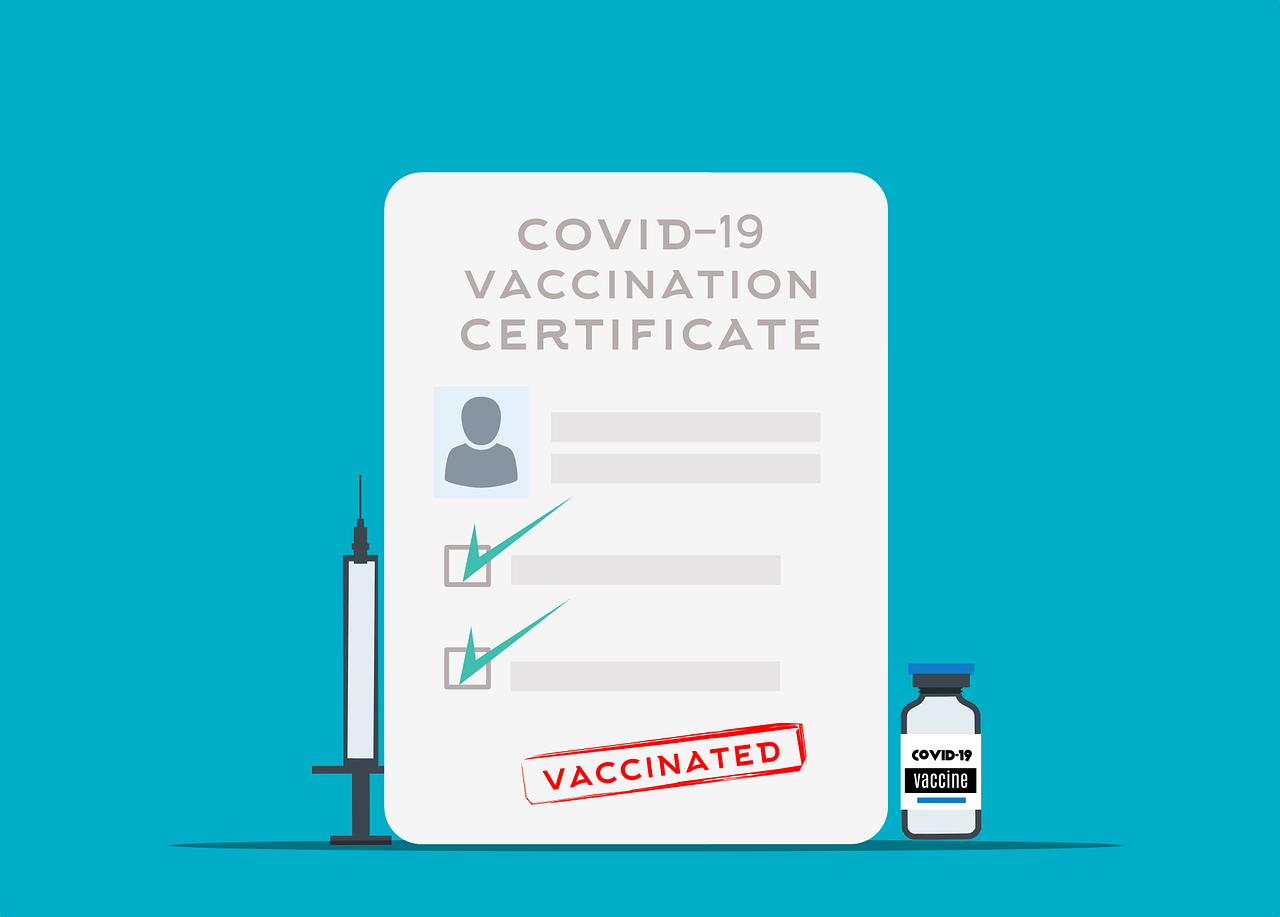
The Importance of Legal Counsel
Navigating the EB-1A application process can be complex and challenging. Seeking legal counsel from experienced immigration attorneys who specialize in extraordinary ability cases is highly advisable. They can help you compile the necessary documentation, ensure your evidence meets the stringent requirements and guide you through the various stages of the application process.
Navigating the EB-1A application process is undoubtedly a complex undertaking, given the high standards and rigorous criteria involved. Here are some reasons why seeking legal counsel from experienced immigration attorneys who specialize in extraordinary ability cases is not only advisable but often crucial:
In-Depth Knowledge of EB-1A Requirements: Specialized immigration attorneys have a profound understanding of the specific requirements for the EB-1A category. They can evaluate your unique qualifications and accomplishments to determine whether you meet the stringent criteria for this visa type.
Customized Strategy: Every EB-1A case is distinct, with individual achievements and career trajectories. Immigration attorneys can tailor a personalized strategy to highlight your exceptional abilities effectively. They identify the most compelling evidence and present your case in the most favorable light.
Comprehensive Documentation: One of the key challenges of the EB-1A application is assembling a comprehensive portfolio of evidence. Experienced attorneys are well-versed in the types of evidence that USCIS looks for and can guide you in collecting the necessary documents, such as reference letters, publications, awards and more.
Stringent Adjudication Standards: USCIS adjudicators apply stringent standards when evaluating EB-1A petitions. Immigration attorneys, through their experience, understand these standards and know how to structure your case to meet them. Their expertise minimizes the risk of your application being denied due to missing or insufficient evidence.
Effective Communication: Attorneys serve as intermediaries between you and USCIS. They handle all communication with the agency, ensuring that responses to requests for evidence (RFEs) and any other correspondence are timely and accurately submitted. This reduces the chances of delays or complications in your case.
Mitigating Potential Issues: If your case has any potential weaknesses or issues that could affect your eligibility, experienced attorneys can identify them in advance and take proactive measures to address and mitigate them. This preemptive approach is critical for a successful application.
Navigating Complexities: The immigration process involves intricate procedures and legal nuances. Attorneys who specialize in immigration law are well-equipped to navigate these complexities and ensure that your case progresses smoothly through each stage of the application process.
Peace of Mind: Engaging the services of an experienced immigration attorney provides peace of mind. You can entrust your case to a professional who is dedicated to your success, knowing that they have the expertise to maximize your chances of obtaining the EB-1A visa.
In conclusion, seeking legal counsel from specialized immigration attorneys when pursuing an EB-1A visa is highly advisable due to the complexity and rigor of the application process. Their knowledge, customized strategies, comprehensive documentation and experience in addressing potential issues are invaluable assets that significantly increase your chances of a successful application. With their guidance, you can navigate the intricacies of the EB-1A category with confidence and clarity.
Looking for more insights? You’ll find them right here in our extended coverage: Chapter 5 – Advanced Degree or Exceptional Ability | USCIS

Proving extraordinary ability is a demanding but rewarding endeavor for those seeking to establish themselves in the United States. The key to success lies in the comprehensive gathering of documentation and evidence that unequivocally showcases your exceptional talents and contributions. With careful preparation and the assistance of knowledgeable legal professionals, you can increase your chances of securing an EB-1A visa and taking a significant step toward realizing your American dream.
Proving extraordinary ability is undeniably a challenging yet fulfilling pursuit for individuals aspiring to establish themselves in the United States. It requires a meticulous approach, where every piece of documentation and evidence plays a crucial role in painting a vivid portrait of your exceptional talents and noteworthy contributions. Your journey to securing an EB-1A visa is akin to crafting a masterpiece, where attention to detail is paramount.
To embark on this path to success, it is essential to understand that the road may be paved with intricate hurdles. However, these hurdles are not insurmountable. They are, in fact, opportunities for you to showcase your resilience and determination. Each piece of evidence you compile, from awards and accolades to publications and testimonials, serves as a brushstroke that adds depth to your narrative.
In this endeavor, the guidance of seasoned legal professionals can prove to be invaluable. Their expertise can help you navigate the intricate web of U.S. immigration laws and regulations, ensuring that your application not only meets the standards but also stands out among the rest. With their support, you can transform what might seem like a daunting task into a well-orchestrated symphony of achievements and qualifications.
Securing an EB-1A visa is more than just a legal process; it represents the culmination of your hard work and dedication. It is the key that unlocks the door to the land of opportunity, allowing you to contribute your exceptional skills to the vibrant tapestry of the United States. With perseverance, preparation and professional guidance, you can significantly enhance your chances of success and take a monumental step toward realizing your American dream. Remember that this journey is not just about securing a visa; it’s about embracing the boundless possibilities that await you on the path to excellence in the United States.
To delve further into this matter, we encourage you to check out the additional resources provided here: Chapter 4 – O-1 Beneficiaries | USCIS
More links
You can also read more about this here: Chapter 5 – Advanced Degree or Exceptional Ability | USCIS
